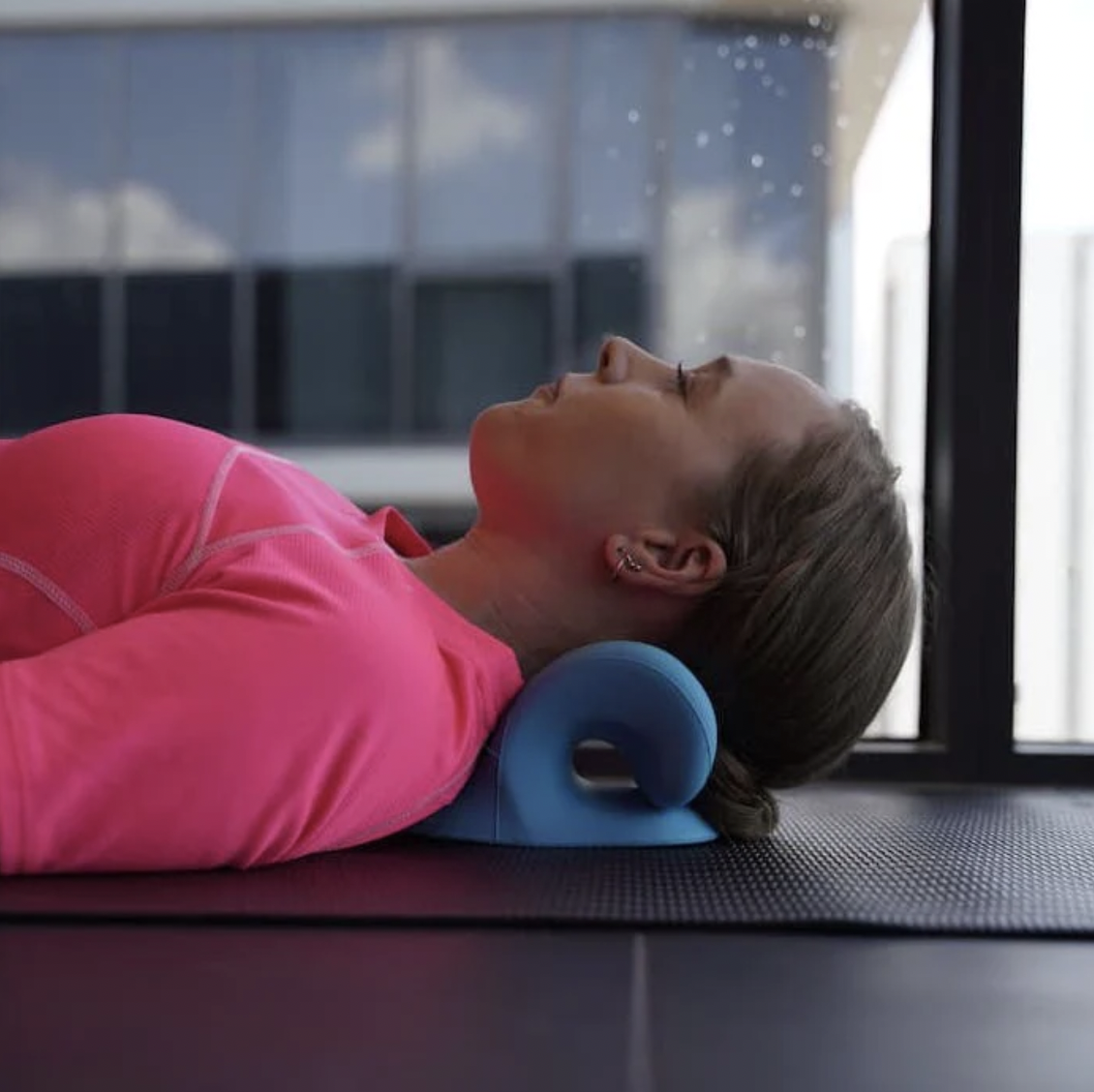Neck Cloud: Ergonomic Style for Maximum Convenience and Discomfort Decrease
Neck Cloud: Ergonomic Style for Maximum Convenience and Discomfort Decrease
Blog Article
The Influence of Stress on Neck Pain: Strategies for Reducing Tension and Pain
In today's busy world, it's no trick that anxiety has actually ended up being a widespread element in the start and worsening of neck pain. Join us on a journey to untangle the impact of stress on neck discomfort and find efficient ways to ease pain and enhance total high quality of life.
Recognizing Stress-Related Neck Pain
Stress-related neck pain can show up as tension, tightness, or discomfort in the neck and shoulder area. The connection between anxiety and neck discomfort lies in the body's physiological reaction to anxiety, which can result in muscle mass stress and rigidity in the neck muscle mass.

Identifying Common Stress Areas
Regularly experienced by individuals under stress and anxiety, stress areas in the body can supply valuable insights right into the physical symptoms of psychological pressure. One common stress location is the neck, where stress usually materializes literally. Tension migraines, tight neck muscle mass, and restricted series of motion prevail signs and symptoms of stress-related neck stress. The shoulders are an additional usual location where tension collects. Tension can cause the muscle mass in the shoulders to tighten, leading to discomfort and pain. Additionally, the upper back is susceptible to tension build-up, especially in people that experience persistent tension. Poor position and prolonged resting can worsen tension in this field. The jaw is likewise an usual area for stress-related tension, as lots of people clench their jaw or grind their teeth when worried. Understanding these common stress locations can aid individuals recognize the physical indications of stress and take steps to address them prior to they escalate into persistent pain or pain.
Implementing Relaxation Methods
To successfully handle stress-related stress in the body, implementing leisure strategies is critical. Leisure strategies are useful devices for reducing neck pain triggered by stress and anxiety. Deep breathing exercises can assist relax the mind and loosen up stressful muscular tissues in the neck and shoulders (neck cloud). Practicing mindfulness reflection can also be advantageous in alleviating tension and promoting leisure. Modern muscle mass relaxation, where you systematically strained and then unwind various muscular tissue groups, can launch built-up stress in the neck location. In addition, tasks like yoga and tai chi include both physical motion and relaxation, making them effective techniques for decreasing tension and neck pain. Taking regular breaks throughout the day to stretch and take a break can prevent muscular tissue stiffness and tension from gathering. By including these leisure strategies right into your daily routine, you can help handle stress degrees, lower stress in the neck, and ease pain related to stress-induced neck discomfort.
Including Self-Care Practices
Including self-care techniques is important for keeping total health and handling stress-related neck pain efficiently. Taking part in routine exercise, such as gentle extending exercises or yoga exercise, can this website help minimize tension in the neck and shoulders. Exercising great pose throughout the day and taking frequent breaks from prolonged resting or display time can also protect against strain on the neck muscular tissues.
Additionally, focusing on ample rest and establishing a constant sleep routine can contribute considerably to lowering stress degrees and promoting leisure. Producing a soothing going to bed regimen, such as reviewing a book or taking a warm bathroom, can aid prepare the mind and body for relaxing sleep. Additionally, maintaining a balanced diet regimen abundant in nutrients and staying moistened can support total wellness and lower inflammation that might exacerbate neck pain.
Including mindfulness practices, such as deep breathing exercises or meditation, can help take care of stress and advertise leisure. Taking time for oneself, taking part in leisure activities, and setting limits to safeguard personal time are also vital facets of self-care that can add to decreasing stress and reducing neck pain.
Looking For Specialist Aid
How can individuals efficiently resolve relentless neck pain that is impacting their day-to-day life and well-being? Seeking professional assistance can be an important action in managing and alleviating neck discomfort. Consulting with health care experts such as chiropractic doctors, physical specialists, or orthopedic professionals can offer important insights and personalized treatment plans. These specialists can carry out detailed analyses to identify the underlying causes of neck pain and recommend ideal interventions.
Chiropractors focus important site on back manipulation techniques to improve alignment and minimize tension in the neck location. Physical specialists supply targeted stretches and exercises to enhance muscular tissues, enhance flexibility, and enhance total neck feature. Orthopedic professionals can supply sophisticated medical interventions such as injections or medical options for severe situations of neck pain.
Verdict

Stress-related neck discomfort can materialize as tension, tightness, or pain in the neck and shoulder area. The connection between anxiety and neck discomfort lies in the body's physiological feedback to stress, which can result in muscle mass tension and tightness in the neck muscle mass. Stress frustrations, tight neck muscle mass, and restricted range of motion more helpful hints are typical signs and symptoms of stress-related neck tension. By integrating these relaxation techniques into your daily regimen, you can help take care of anxiety degrees, lower tension in the neck, and relieve pain connected with stress-induced neck pain.

Report this page